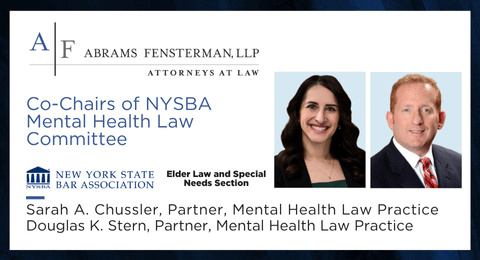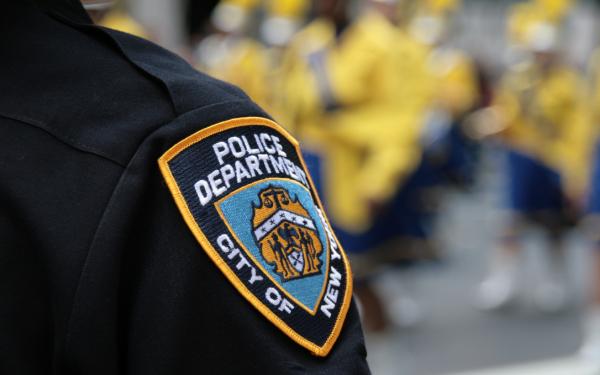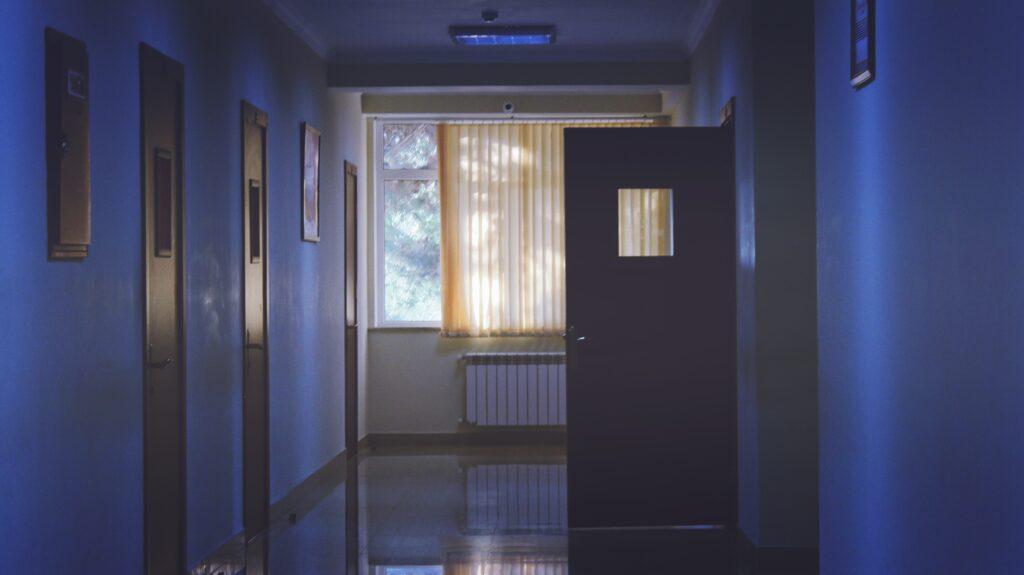July 23, 2025 — Governor Kathy Hochul stated that, “people with serious mental illness deserve care – not chaos. Yet too long, our mental health system has been failing those who needed it most.” Governor Hochul’s office indicated that she will ratify amendments to the Mental Hygiene Law that will, “address gaps in the standards for involuntary commitment”, Kendra’s Law (or Assisted Outpatient Treatment) as well as other aspects of the Mental Hygiene Law which are viewed by some as impeding access and continuity of behavioral health care.
On May 9, 2025, Governor Hochul signed a bill which allots $196 million dollars to “strengthen the mental health care system”, $160 million dollars towards the expansion of forensic inpatient beds, and “strengthens New York’s Involuntary Commitment Laws and Kendra’s Law” (SOURCE: Governor Hochul Signs Legislation to Improve Mental Health Care and Strengthen Treatment for Serious Mental Illness as Part of FY 2026 Budget | Governor Kathy Hochul) This is part of the Governor’s overall commitment of $1 billion dollars to “transform the mental health care system” over the next several years.
It should be noted that this client alert is for informational purposes only and should not be construed as legal advice. Further, this alert will only address amendments to take effect on August 7, 2025 (there are other amendments which become effective in July, 2027).
Here is an overview of the most significant changes:
MHL 9.01: General Definitions
Effective August 7, 2025, the definition of “qualified psychiatrist” under N.Y. Mental Hygiene Law Section 9.01(g) will be expanded to mean both a physician licensed to practice medicine who:
(a) is a diplomate of the American board of psychiatry and neurology or is eligible to be certified by that board; or
(b) is certified by the American osteopathic board of neurology and psychiatry or is eligible to be certified by that board.
MHL 9.05: Examining Physicians and Medical Certificates
Effective August 7, 2025, amendments to N.Y. Mental Hygiene Law Section 9.05(3)(b) will expand the role of psychiatric nurse practitioners by permitting a required medical certificate to be based on an examination conducted by either a physician or a psychiatric nurse practitioner.
(b) A certificate, as required by this article, must show that the person is mentally ill and shall be based on an examination of the person alleged to be mentally ill made within ten days prior to the date of admission. The date of the certificate shall be the date of such examination. All certificates shall contain the facts and circumstances upon which the judgment of the physician or psychiatric nurse practitioner is based and shall show that the condition of the person examined is such that they need involuntary care and treatment in a hospital and such other information as the commissioner may by regulation require.
MHL 9.27: Voluntary and Informal Admissions
Effective August 7, 2025, amendments to N.Y. Mental Hygiene Law Section 9.27 expand the role of psychiatric nurse practitioners in the involuntary admission process.
- Under Section 9.27(a), the required certificates for involuntary admission may be completed by either two examining physicians or one physician and one psychiatric nurse practitioner.
- Section 9.27(d) requires examining professionals, including both physicians and psychiatric nurse practitioners, to consider alternative forms of care and treatment that might be adequate for the person’s needs without requiring involuntary hospitalization. If the examining physicians or psychiatric nurse practitioner knows that the person they are examining for involuntary admission has been under prior treatment, they must, where possible, consult with the physician or psychologist who furnished such prior treatment before completing their certificate.
- Section 9.27(e) requires the director of the hospital to ensure the patient is examined immediately upon their admission by a physician other than the initial examining physicians or psychiatric nurse practitioner.
- Finally, Section 9.27(i) authorizes psychiatric nurse practitioners to request law enforcement and ambulance services to take the mentally ill patient into custody and transport such person to a hospital for determination by the director whether such person qualifies for admission pursuant to this section.
These amendments permit psychiatric nurse practitioners to complete one of the initial certificates of admission and request law enforcement or ambulance support to transport a mentally ill patient to a hospital.
MHL 9.39: Emergency Admissions for Immediate Observation, Care, and Treatment
Effective August 7, 2025, amendments to N.Y. Mental Hygiene Law Section 9.39:
- Expand the definition of “likelihood to result in serious harm” to include:
- Substantial risk of physical harm to themselves as manifested by threats of or attempts at suicide or serious bodily harm or other conduct demonstrating that they are dangerous to themself, or
- A substantial risk of physical harm to other persons as manifested by homicidal or other violent behavior by which others are places in reasonable fear of serious physical harm, or
- A substantial risk of physical harm to the person due to an inability or refusal, as a result of their mental illness, to provide for their own essential needs such as food, clothing, necessary medical care, personal safety, or shelter. The director shall enter the name(s) of the person(s), if any, who have brought such person to the hospital, and the details of the circumstances leading to that person’s hospitalization in the hospital records.
As discussed in a recent article written by Justice Chereé A. Buggs and published in New York Law Journal, this added definition is a codification of “the nearly four decades-old holding in Boggs v. New York City Health and Hospitals Corp., and clarifies that the patient’s potential for serious harm to themselves need not be established by evidence of an overt risk of bodily harm or danger, or suicide attempt for a court to find that continued retention is justified.” Chereé A. Buggs, Recent Amendments to the New York State Mental Hygiene Law, New York Law Journal (2025), https://www.law.com/newyorklawjournal/2025/06/08/recent-amendments-to-the-new-york-state-mental-hygiene-law-/ .
Additionally, the article mentions that this definition broadens the authority of law enforcement officials to take into custody those “appearing to be mentally ill,” and who, at minimum, evidence an inability or unwillingness to provide for their basic needs. However, despite this added definition, “for those involuntarily retained as patients in hospital psychiatric units, it will, as always, rest with the courts to determine if the required standards for retention have been met.” Id.
- Implement notification requirement by requiring that the director, upon admission of a person under this section:
- Ensure that reasonable efforts are made to identify and promptly notify any community provider of mental health services that maintains such person on its caseload that such person has been received for examination under this section.
- Serve the person with written notice, containing their name, of their status and rights as a patient, and
- At the same time, also notify mental hygiene legal services and, personally or by mail, up to three person(s), as designated in writing to receive such notice by the person alleged to be mentally ill, of the person’s status and rights as a patient.
- Implement discharge requirements under (a-1).
- Under (a-1)(1), if a patient admitted under this section is discharged at any time before such patient has been admitted to a psychiatric center or inpatient psychiatric service subject to licensure by the office of mental health, the facility shall:
- Advise such patient on clinically appropriate follow up services; and
- For individuals with complex needs, as defined by the regulations of the office:
- For individuals in care management programs, coordinate discharge planning with such care management program; and
- Provide referrals, if clinically appropriate and available, for care management services, community-based services, residential services, or peerbased programs.
- Under (a-1)(2), discharges shall comply with discharge obligations under article 28 of the public health law and the regulations of the department of health, as applicable.
MHL 9.40: Emergency observation, care and treatment in comprehensive psychiatric emergency programs.
Effective August 7, 2025, amendments to N.Y. Mental Hygiene Law Section 9.40:
- Implement additional notification requirement to subdivision (a):
- “The director shall, in accordance with section 33.13 of this chapter, upon receipt of a person under this section, ensure that reasonable efforts are made to identify and promptly notify any community provider of mental health services that maintains such person on its caseload.”
- Implement subdivision (a-1), requiring that the director cause triage and referral services to be provided by a psychiatric nurse practitioner or physician of the program as soon as such person is received into the comprehensive psychiatric emergency program. After receiving these services, such person must be appropriately treated and discharged or referred for further crisis intervention services including an examination by a physician described in subdivision (b).
- Implements subdivision (b), requiring that, if such person is not discharged after being provided triage and referral services, the director must cause examination of that person by a staff physician of the program as soon as practicable and within six hours after appearing in the program’s emergency room. Such person may be retained for observation, care, and treatment for up to twenty-four hours if the staff physician concludes, after their examination, that such person may have a mental illness and immediate observation, care, and treatment in a comprehensive psychiatric emergency program is appropriate.
- Implement subdivision (c), outlining when a person may be involuntarily retained for more than twenty-four hours:
- No person shall be involuntarily retained in accordance with this section for more than twenty-four hours, unless:
- Within the twenty-four hours they have been provided triage and referral services by a psychiatric nurse practitioner or physician of the program and this providers determination has been confirmed by a staff physician who is a member of the psychiatric staff program, and
- The person is admitted to an extended observation bed, as defined by section 31.27 of this chapter, and at the time of this admission the person and other person(s) listed in subdivision (a) of section 9.39 have been served with written notice of his status and rights as a patient, including his name.
- Implement additional discharge requirements to subdivision (d) requiring that a person discharged after it has been determined they no longer need involuntary, immediate observation, care, and treatment in a hospital be released without regard to the provisions of section 29.15 of this chapter, and requiring that the facility:
- Advise such person of clinically appropriate aftercare services; and
- For individuals with complex needs, as defined by the regulations of the office:
- for individuals in care management programs, coordinate discharge planning with the care management program; and
- provide referrals, if clinically appropriate and available, for care management services, community-based services, residential services, or peerbased programs; and
- Comply with additional requirements as may be set forth by the regulations of the office of mental health.
- Implement a transfer requirement via subdivision (e), requiring that, if it is determined that a person needs care beyond seventy-two hours, they be transferred to a hospital that is authorized to admit patients under section 9.39 and admitted in accordance with section 9.39 if appropriate.
- If such person is admitted, the fifteen-day retention period of subdivision (b) of section 9.39 shall be calculated from the time such person was initially registered into the emergency room.
- Any person removed to a hospital pursuant to this subdivision shall be removed without regard to the provisions of section 29.11 or 29.15 of this chapter and shall not be considered to have been transferred or discharged to another hospital.
- Implement subdivision (f), permitting involuntary admission at any time during seventy-two hours if patient is in need, regardless of whether they agree to voluntary admission.
MHL 9.60: Assisted outpatient treatment.
Effective August 7, 2025, amendments to N.Y. Mental Hygiene Law Section 9.60:
- Amend the criteria under subdivision (c)(4)(iii). Per the amendment, (c) a person may be ordered to receive assisted outpatient treatment if the court finds that such person (4) has a history of lack of compliance with treatment for mental illness that has… (iii) resulted in the issuance of a court order for assisted outpatient treatment that has expired within the last six months, and since the expiration of the order;
- the person has experienced a substantial increase in symptoms of mental illness that substantially interferes with or limits the person’s ability to comply with recommended treatment; or
- the person, due to a lack of compliance with recommended treatment, has undergone emergency observation, care, and treatment or has been admitted for inpatient care or has been incarcerated.
- Amend the criteria under subdivision (c)(7) for when a person may be ordered to receive assisted outpatient treatment if the court finds that such person is likely to benefit from assisted outpatient treatment, adding that previous non-compliance with court oversight or mandated treatment shall not preclude a finding that the person is likely to benefit from assisted outpatient treatment.
- Add that, under subdivision (e)(1)(ii), a domestic partner may initiate a petition for an order authorizing assisted outpatient treatment that may be filed in the supreme or county court in the county in which the subject of the petition is present or reasonably believed to be present.
*MHL 9.64: Notice of admission determination to community provider
Effective August 7, 2025, amendments to N.Y. Mental Hygiene Law Article 9 implement Section 9.64, requiring that, upon an admission to a hospital or received as a patient in a comprehensive psychiatric emergency program, the director of such hospital or program shall:
- ensure that reasonable efforts are made to identify and promptly notify of such determination any community provider of mental health services that maintains such person on its caseload.
***
Special thanks to Intern, Jessica Hegmann, for her work in preparing this client alert.
For more information on New York’s Mental Hygiene Law or to schedule a initial consultation, please reach out to Douglas K. Stern, Esq. in our Mental Health Law Practice at 516-328-2300.





